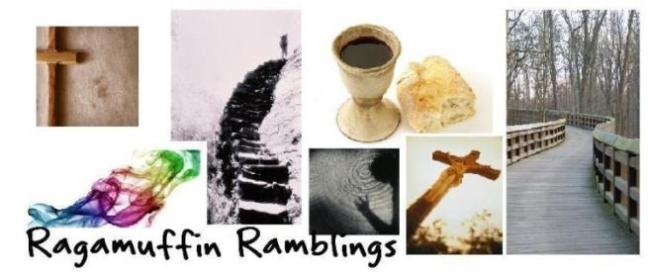Therefore, my dear friends, as you have always obeyed—not only in my presence, but now much more in my absence—continue to work out your salvation with fear and trembling, / for it is God who works in you to will and to act according to his good purpose. (Philippians 2:12-13, NIV)In the Hyde Park area of Chicago, there was a group of young Lutheran men and women who all had the same t-shirt. On the front, it just said "Both...." and on the back, it simply said "....and...."
"Christians have often disputed as to whether what leads the Christian home is good actions, or Faith in Christ. I have no right really to speak on such a difficult question, but it does seem to me like asking which blade in a pair of scissors is most necessary... The Bible really seems to clinch the matter when it puts the two things together into one amazing sentence. The first half is, 'Work out your own salvation with fear and trembling' - which looks as if everything depended on us and our good actions; but the second half goes on, 'for it is God who worketh in you' - which looks as of God did everything and we nothing."
(CS Lewis, "Mere Christianity," chapter 12, p. 131)
"Both...and....?" I eventually asked one fellow, feeling like I'd slept through a class somewhere. "What's that supposed to mean?"
Turns out it was a reference to Lutheran doctrine - being BOTH saint AND sinner, BOTH dead in sin AND justified by faith, BOTH bread AND body-of-Christ. And while that doctrine meant a great deal to me (because I had often experienced this simultaneous nature of "both/and" in my life), I wondered why it wasn't applied to the ongoing struggle between "good works" and "faith in Christ" - a struggle that has been going on between branches of Christianity for hundreds of years.
That's why when I first read CS Lews' classic book Mere Christianity, this passage (and the passage from Philippians it refers to) seemed so crystal clear. It really IS like trying to cut with just one blade of a scissors - without the other, it's pretty much useless. So, too, faith and works - if you really believed in Christ, how could you not be called to feed the poor, clothe the naked, give drink to the thirsty, and care for the disadvantaged? And if you were truly doing good works (rather than doing nice things so people would see how good you were), how could you fail to see the active spirit of God at work in the world around us, leading us to faith?
So much of the breakdown between Christian sects comes down to either/or thinking - it's my way, or your way. These people are in, these people are out. Pre-millenialists versus post-millenialists. And so on - with the only assumption that the views are opposing, and irreconcilable. But so many times, the God of creation didn't create just black or white, but an incredible rainbow of choice.
That's why, whenever a group of Christians want to include or exclude people based on one particular verse of Scripture, I am reminded of the instruction of Micah 6:8: "He has showed you, O man, what is good. And what does the Lord require of you? To act justly AND to love mercy AND to walk humbly with your God." (emphasis mine)
I'm called to act justly, but in administering justice I also have to be committed to be merciful. And given the power to both judge and administer mercy, I have to maintain humility, remembering that judgement and vengeance ultimately reside at the throne of God, and not in my hands.
God of the universe, help me to remember that you are greater than any definition we can create and any box we can try to put you in. Help me to remember the lessons of your servant Martin, that I am both dead in me and alive in you. And help me remember to see my brother and sister humans in exactly the same light. Amen...

4 comments:
I think Luther put it as "simul justis et peccator" simultaneously justified and sinners.
Oh, boy, ain't that the truth! But there is grace in that, fer sure.
Cheers, Joe.
Hey, hop on over to my blog. You can see the photos I took in the finished products for Hollis Renewal Center, and for Atonement Stewardship pamphletes.
As a Catholic, I always appreciate the fact that the best of the tradition is about both-and. Heresy, in fact, has historically arisen when a group wants to grab onto one thing and say that that is all the truth. The very word itself comes from the Greek "to choose."
awesome post, brother.
you nailed it (again).
peace,
jeff
Post a Comment